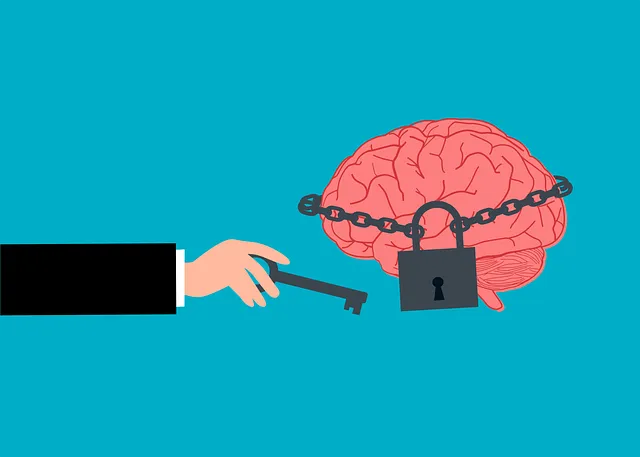Kaiser Permanente behavioral health services Englewood prioritize emotional intelligence (EI) for improved patient care. Through training in self-awareness, trauma support, mental wellness journaling, and stress reduction methods, healthcare workers build resilience and create compassionate environments. Active listening, empathy cultivation, and deep understanding of patients' emotions enhance communication, prevent burnout, and promote positive outcomes, reflecting Kaiser Permanente's holistic approach to behavioral health services in Englewood.
“Emotional intelligence (EI) is a transformative power that fosters healthier relationships and enhances communication, especially in healthcare settings like Kaiser Permanente Behavioral Health Services Englewood. This article explores strategies for building EI, focusing on self-awareness, empathy, and active listening—essential components for professionals at Englewood. By understanding emotions and responding mindfully, staff can create a more nurturing environment, improving patient care and overall well-being.”
- Understanding Emotional Intelligence: The Foundation of Effective Communication at Kaiser Permanente Behavioral Health Services Englewood
- Strategies for Enhancing Self-Awareness: A Key Component of EI Development
- Cultivating Empathy: Building Bridges and Strengthening Relationships
- Practicing Active Listening: The Art of Understanding and Responding to Emotions
Understanding Emotional Intelligence: The Foundation of Effective Communication at Kaiser Permanente Behavioral Health Services Englewood

At Kaiser Permanente Behavioral Health Services Englewood, understanding emotional intelligence (EI) is recognized as the bedrock for fostering effective communication among healthcare professionals and patients alike. EI involves recognizing, managing, and effectively utilizing one’s own emotions, as well as comprehending and empathizing with the feelings of others. This holistic approach to interpersonal interactions significantly enhances patient care and outcomes.
Through comprehensive training programs and initiatives, Kaiser Permanente Englewood prioritizes integrating Self-Awareness Exercises and Trauma Support Services into their public awareness campaigns development process. These strategies not only strengthen the emotional resilience of healthcare workers but also create a more compassionate and responsive environment for patients, ensuring that every interaction is guided by empathy and understanding.
Strategies for Enhancing Self-Awareness: A Key Component of EI Development

Self-awareness is a fundamental aspect of emotional intelligence development, and it’s an area where Kaiser Permanente behavioral health services Englewood can offer valuable guidance. One effective strategy to enhance self-awareness is through mental wellness journaling. Regularly documenting your thoughts, emotions, and experiences allows you to gain deeper insights into your triggers, patterns, and strengths. This practice enables individuals to identify their unique emotional responses and develop a stronger sense of understanding.
Additionally, incorporating stress reduction methods into your routine can significantly contribute to improving self-awareness. Techniques like mindfulness meditation, deep breathing exercises, or engaging in physical activities help create space between stimuli and response, allowing for better observation and control over one’s emotions. These practices not only promote emotional balance but also foster a heightened sense of self-perception, which is crucial for EI growth.
Cultivating Empathy: Building Bridges and Strengthening Relationships

Cultivating empathy is a cornerstone of emotional intelligence and plays a pivotal role in building bridges and strengthening relationships. This skill allows individuals to understand, share, and reflect on the feelings of others, fostering deeper connections. At Kaiser Permanente behavioral health services Englewood, professionals recognize that empathy is not merely a nicety but an essential tool for delivering compassionate care. By practicing compassion cultivation, healthcare providers can reduce the Mental Illness Stigma Reduction Efforts, creating safer spaces for patients to open up about their struggles.
Empathy acts as a protective shield against burnout, especially in high-pressure environments like healthcare. Compassion Cultivation Practices encourage professionals to step into another’s shoes, enabling them to offer tailored support and solutions. This proactive approach not only enhances patient outcomes but also strengthens the bond between caregivers and those seeking assistance. Through empathy, healthcare providers can navigate complex situations with grace, ensuring every interaction is a step towards healing and recovery.
Practicing Active Listening: The Art of Understanding and Responding to Emotions

At Kaiser Permanente behavioral health services Englewood, active listening is recognized as a cornerstone skill for enhancing emotional intelligence. This practice involves deeply focusing on both what’s said and unsaid, as well as acknowledging and responding appropriately to emotions expressed by others. It’s not just about hearing; it’s about understanding and empathizing. By actively listening, individuals can build stronger connections, foster effective communication, and create a safe space for open expression of feelings. This fosters an environment conducive to mental health awareness and promotes the coping skills development necessary for navigating life’s challenges.
Active listeners use nonverbal cues like maintaining eye contact, nodding, and adopting an open posture to convey engagement. They also avoid interrupting and allow the speaker to express their emotions fully. This process allows individuals to recognize not just the words but also the underlying messages conveyed through tone of voice and body language. Through practicing active listening, one can cultivate a deeper understanding of others, strengthen relationships, and develop a more positive outlook, all of which contribute to an individual’s overall well-being.
Emotional intelligence (EI) is a powerful tool for personal growth and professional success, especially within healthcare settings like Kaiser Permanente Behavioral Health Services Englewood. By understanding and cultivating EI through self-awareness, empathy, active listening, and other strategies discussed here, individuals can enhance their communication skills, build stronger relationships with patients and colleagues, and ultimately provide more compassionate care. These practices are not only beneficial for the well-being of healthcare professionals but also contribute to a more positive and effective work environment at Kaiser Permanente Englewood.






